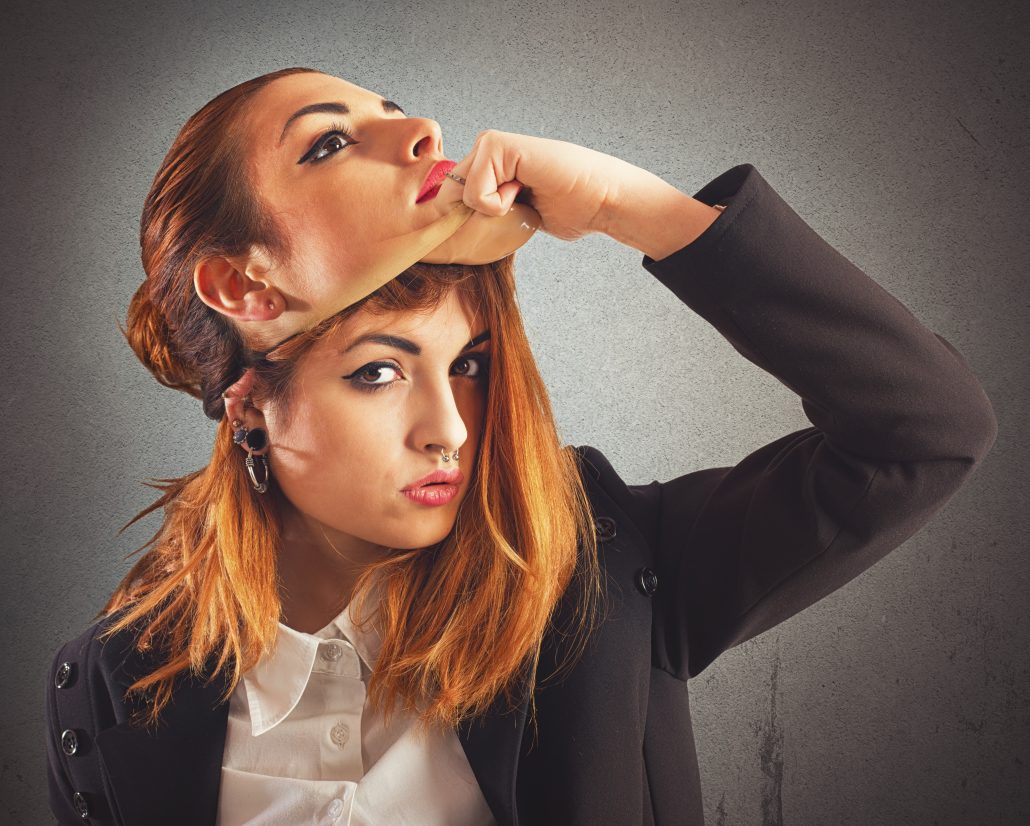6 Family Roles People Use When Coping with Addicted Loved Ones

(This content is being used for illustrative purposes only; any person depicted in the content is a model)
Most people in the world would say that nothing is more important than family. They say that you can choose your friends, but family is forever. If you subscribe to the philosophy of blood being thicker than water, then it makes sense that when those closest to you suffer, you suffer right along with them. For many, this concept is never more painfully clear than when living with an addict in the family. Even though plenty of people struggling with addiction say they are only hurting themselves, most of us know that addiction is a family disease.
While there are many obvious ways that addiction affects a family, like domestic violence, financial troubles or death, there are also some more subtle consequences. When someone is suffering, their loved ones will often develop specific family roles for dealing with addiction. Depending on the household, and how the addiction manifests itself, some people may take on multiple roles in order to try and create a balance at home. However, many of these family roles can cause adverse effects of personal development over time.
Here are 6 family roles people use when coping with addicted loved ones.
-
The Victim
Addiction and its effects draw a lot of attention, so it may seem to the addict that the world revolves around them. They take on a victim mentality, often causing others in the family to feel the need to save them, or at least to avoid disturbing them.
The victim is central to all the other family roles that develop around it. As the roles are defined, the victims loved ones unconsciously take on other family roles to complete the balance after the problem has been introduced.
Although this person’s actions are the key to their own recovery and overcoming the victim mentality, it is important to remember they are not necessarily vital for a family to recover on its own.
-
The Hero
In the family, there will be someone who tries to be the champion for the victim and the family. This is someone who needs the family to look good, and they will work hard to make it so. The problem with the Hero is that they try to ignore the addiction and its effects. Instead, they want to dress everything up and act as if all is well.
The Hero will present things in a positive manner as if the family roles don’t actually exist. They are often perfectionists and overachievers, who seek to unite the family and offer hope through their own accomplishments. But taking on all this pressure can cause a lot of stress and anxiety for this family member. Very often this is the child of an addict or alcoholic.
If the Hero is able to finally overcome this role, they can ultimately play a crucial part in the addiction recovery process, both for the individual and for the family.
-
The Mascot
The Mascot’s is often thought of as the comic relief. This is the member of the family who uses humor as a defense mechanism and a distraction tactic. They try to soften the impact of an addicts behavior or ease tensions between family roles through laughter.
On the bright side, the Mascot does bring humor to the family roles people use for coping with addicted loved ones. They have a talent for making others feel better, even in the worst situations. But ultimately, they are also people-pleasers to a fault, which can foster feelings of anxiety.
However, Mascots sometimes make inappropriate jokes about other family members or situations, which can causes friction. They also run the risk of avoiding their own feelings or being inconsiderate of the feelings of others. Sometimes their harmful humor can hinder addiction recovery.
Also, the Mascot is likely to self-medicate as they grow up, perpetuating the cycle of addiction.
-
The Lost Child
In every family that deals with an addicted loved one, there is usually someone who tries their best to disappear. They are silent, withdrawn, and avoid drawing much attention to themselves from other members of the family. This is the Lost Child.
The Lost Child is typically careful to not make problems. They avoid any kind of conflict, along with conversations regarding the addiction or the underlying family roles that take shape around the victim.
The Lost Child will spend as much time as possible in isolation or away from their family. They are the child who sits in their room playing video games or watching TV for hours without any interaction. The Lost Child will often develop feelings of neglect and resentment, which can lead to depression. They often grow up to have a very difficult time developing healthy relationships later in life.
-
The Scapegoat
The Scapegoat is a problem child. Usually, this is the black sheep of the family who often acts out in front of others. They take on this role, knowingly or subconsciously, to divert attention from the person who is addicted. They rebel home, get in trouble at school, make a lot of noise to mask the underlying issues in the family. Male scapegoats are often prone to violence, while female scapegoats frequently act out sexually.
This person may even adopt substance use in order to run interference for a parent or sibling. They may develop other issues as well, such as eating disorders or a tendency to self-harm.
The Scapegoat covers or draws attention away from the real problem. They grapple with feelings or anger and shame, and they often offer the other family roles a sense of purpose- being someone to watch out for or try to fix.
-
The Enabler
The Enabler is also commonly referred to as the Caretaker but is always the person who makes all the other family roles possible. Most often this is a spouse, but it can also be a child of an addict.
Caretakers will take it upon themselves to keep everyone happy, believing it is the best way to protect the family. Their mission is to maintain balance in order to make the family look good on the outside. They are notorious for minimizing the addiction, making excuses for all behaviors and actions. They have a knack for blaming everything on something else, without acknowledging the real problem.
This person protects the addict from consequences, while constantly cleaning up after their messes.
Additionally, the Enabler frequently embraces the other family roles when they are convenient for maintaining the family balance. They will laugh at the Mascots harmful jokes, or adamantly put the focus on the Hero’s achievements. They will support the Lost Child’s “independence”, and run interference for the Scapegoat, all while catering to and caring for the needs of the victim.
Functional Dysfunction
At the end of the day, the family roles people adopt as part of coping with an addicted loved one are a kind of functional dysfunction. It is a system that people create in order to survive situations at home that can be toxic and unpredictable. Human beings by nature will behave in accordance with their surroundings. Out of self-preservation, we will get used to unhealthy strategies for dealing with unhealthy relationships. Even if they are not effective, if they help us get by there is a lot of damaging stuff we will get used to.
All of these family roles demonstrate how important it is for families to be supported and involved in a loved one’s recovery from addiction. Because we can see how addiction impacts the family, we know that the family also needs help in overcoming those adversities. Having a recovery program designed specifically for family members and loved ones of people with addiction can make all the difference. Not only does it help the family support their loved one, but it helps the family recover on its own. Family can also play a very important role in relapse prevention. It teaches them what their loved ones may experience during the medical detox phase of treatment. It helps them better understand the science of addiction and the process of recovery, while also showing them how their own behaviors have an impact.


